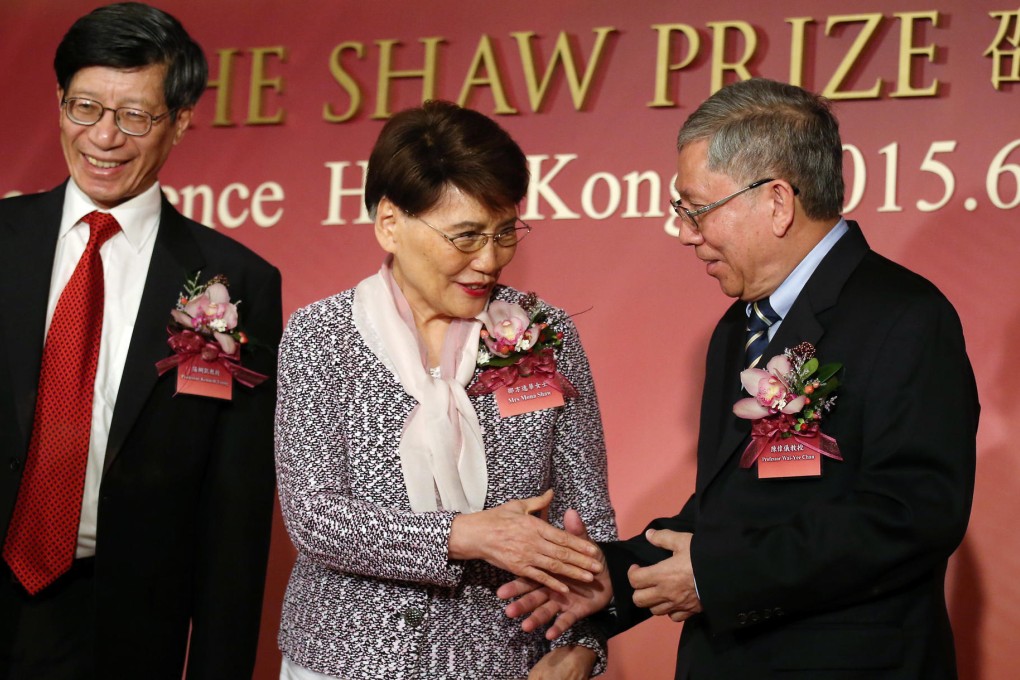Shaw Prize honours five international scientists with prestigious award
As five international scientists honoured, Nobel Prize could be next step

The city's top annual science award has become a stepping stone to the Nobel Prize, a leading academic revealed yesterday.
Seven winners of the Shaw Prize, founded in 2002 by late film mogul Sir Run Run Shaw, have become Nobel laureates since after receiving the annual honour in Hong Kong, said Professor Kenneth Young, vice-chairman of the board of adjudicators.
Young made the remark during yesterday's announcement of this year's winners. Five eminent scientists in the United States and Germany have won or shared top prizes in astronomy, life science and medicine, and mathematical sciences.
"We are all pleased to see that quite a number of Shaw Prize-winners had gone on very shortly to win the Nobel Prize - I believe there are seven - and I think that shows the quality of the adjudicating process that identifies the top scientists, the best ones in the world," the Chinese University professor of physics said.

The Prize for Life Sciences and Medicine was shared by Professor Bonnie Bassler of Princeton University and E. Peter Greenberg of the University of Washington for the discovery of quorum sensing that sheds new light on bacteria communication and offers ways to interfere that have significant health applications.